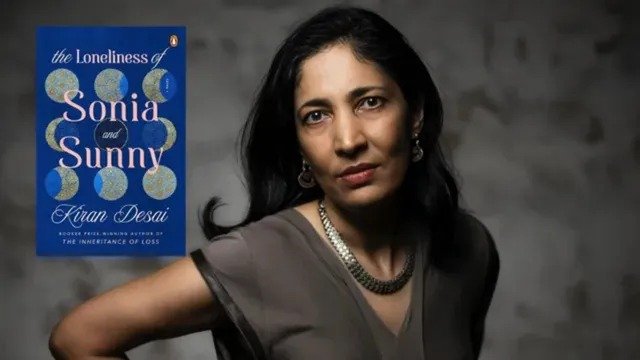
Kiran Desai, the reclusive yet evocative author who once shook the literary world with The Inheritance of Loss, has quietly made her return to the global stage. Her new novel The Loneliness of Sonia and Sunny has earned a place on the longlist for the prestigious 2025 Booker Prize. That alone is news enough to cheer any lover of good writing. But there is more to celebrate. Desai's work has not just found a spot on the list. It has reminded readers and critics of a voice that whispers with depth and roars with humanity.
Desai, who has kept a relatively low profile since winning the Booker in 2006, brings in her new book the same gentle intensity and intricate observation that made her earlier works timeless. This time, she dives into the lives of Sonia and Sunny, two characters whose love is burdened and enriched by memory, class, migration and identity. The story, as described by the Booker committee, carries the reader across the heartlands of India and the streets of New York. It ties together generations, weaves through pain and healing, and captures the ache of distance between lovers and lands.
There is a certain honesty in Desai's prose. It does not try to be clever, yet it often ends up being profound. Her language is never ornamental, yet the images it creates are vivid enough to live in the mind long after the last page. It is writing that speaks softly but leaves echoes. In The Loneliness of Sonia and Sunny, she seems to be writing not to impress but to understand. That is why it works. It is literature without gimmicks. The novel is not short, weighing in at 667 pages, but the length appears to be earned. Like a slow-cooked curry or a long, thoughtful monsoon walk, it promises flavour and depth.
The Booker judges, led by Roddy Doyle, appear to have recognised this. Desai’s work, they said, explores “the memories that shape their loves and the complications that link one generation to the next.” These are familiar themes for Indian writers, yet Desai handles them with a delicacy that avoids both cliché and overstatement. She gives us characters who feel real not because they are dramatic, but because they are ordinary in ways we all understand.
This year’s Booker longlist brings together thirteen titles from across the world. There is something poetic in the fact that Desai’s book stands among stories rooted in Hungary, Ireland, England, and America. Her voice, trained in the literary traditions of the West and steeped in the emotional language of the East, speaks a truth that travels across borders.
Desai was born in India but moved to the US as a teenager. Her upbringing among intellectuals – her mother being the respected author Anita Desai – gave her a foundation not just in craft but in curiosity. She absorbed the nuances of both Delhi’s drawing rooms and New York’s lonely parks. This blend gives her writing its rare texture. It smells of spices and rain, yet carries the silence of snowy sidewalks. It holds the sound of temple bells and the rumble of subways.
This year, the Booker ceremony will take place in November, and should Desai win, she would become the first double winner from India. But even if she does not win, her inclusion on the longlist is itself a moment worth pausing for. For in a world of hurried books and noisy debates, Desai has returned with a quiet masterpiece that insists we listen. Not with ears alone, but with the heart.
Let the prize go where it may. The real reward lies in the pages of her story, in the space she gives her characters to breathe, and in the mirror she holds up to our fragmented selves. That is the triumph of Kiran Desai. And that, dear reader, is what makes literature worth reading still.





















